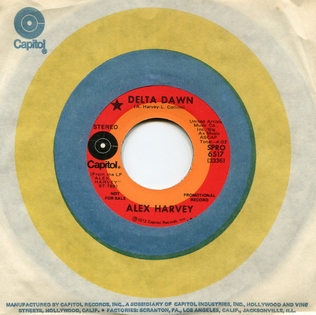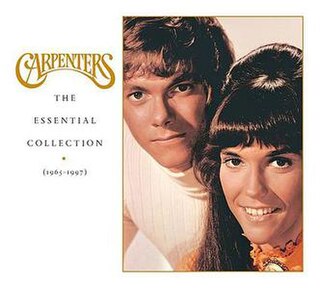Related Research Articles
Clodagh Rodgers is a retired singer from Northern Ireland, best known for her hit singles including "Come Back and Shake Me", "Goodnight Midnight", and "Jack in the Box".
The Flirtations are an all-female musical group who have recorded since the early 1960s.
Invictus Records was an American record label based in Detroit, Michigan. It was created by former top Motown producers Brian Holland, Lamont Dozier and Edward Holland, Jr.. It was the sister label to the Buddah-distributed Hot Wax Records, which was also owned by Holland-Dozier-Holland.

Stephanie Dorthea Mills is an American singer and songwriter. She rose to stardom as "Dorothy" in the original seven-time Tony Award winning Broadway run of the musical The Wiz from 1974 to 1979. The song "Home" from the show later became a Number 1 U.S. R&B hit and her signature song.

Larry Eugene Carlton is an American guitarist who built his career as a studio musician in the 1970s and 1980s for acts such as Steely Dan and Joni Mitchell. One of the most sought after guitarists of his era, Carlton has participated in thousands of recording sessions, recorded on hundreds of albums in many genres, including more than 100 gold records, as well as for television and movies. He has been a member of the jazz fusion group the Crusaders and the smooth jazz band Fourplay, and has maintained a long solo career.

The Lettermen are an American male pop vocal trio whose trademark is close-harmony pop songs with light arrangements. The group started in 1959. They have had two Top 10 singles, 16 Top 10 singles on the Adult Contemporary chart, 32 consecutive Billboard chart albums, 11 gold records, and five Grammy nominations.

"Delta Dawn" is a song written by musician Larry Collins and country songwriter Alex Harvey. The first notable recording of the song was in 1971 by American singer and actress Bette Midler for her debut album The Divine Miss M. However it is best known as a 1972 top ten country hit for Tanya Tucker and a 1973 US number one hit for Helen Reddy.
Blue Mink were a British six-piece pop group that existed from 1969 to 1977. Over that period they had six Top 20 hit singles in the UK Singles Chart, and released five studio based albums. According to AllMusic: "they have been immortalised on a string of compilation albums, each recounting the string of effervescent hits that established them among Britain's best-loved pop groups of the early 1970s."
Springbok Radio was a South African nationwide radio station that operated from 1950 to 1985.
"Pledging My Love" is a blues ballad. It was written by Ferdinand Washington and Don Robey and published in 1954.

BZN was a Dutch pop group that had a string of hits from 1966 to 2007 on. BZN recorded mostly in English and French, but also had success with material in Dutch and German.
Russell Kunkel is an American drummer who has worked as a session musician with many popular artists, including Bill Withers, Jackson Browne, Joni Mitchell, Jimmy Buffett, Harry Chapin, Rita Coolidge, Neil Diamond, Bob Dylan, Cass Elliot, Dan Fogelberg, Glenn Frey, Art Garfunkel, Nitty Gritty Dirt Band, Carole King, Lyle Lovett, Reba McEntire, Stevie Nicks, Linda Ronstadt, Bob Seger, Carly Simon, Stephen Stills, James Taylor, Joe Walsh, Steve Winwood, Neil Young, and Warren Zevon. He was the studio and touring drummer for Crosby & Nash in the 1970s and played on all four of their studio albums.

Charity Brown is a Canadian film actress, singer, and voice artist for television animation shorts. She is one of Eastwood Collegiate Institute's notable alumni.

"Don't You Know?" is a 1959 popular song written by Bobby Worth, and hit record for singer Della Reese.

The Essential Collection: 1965–1997 is a box-set compilation album from The Carpenters that, with the exception of a few track changes, is essentially the same as the 1991 From the Top set. Coming in at four discs and 73 songs, this album is one of the biggest of all Carpenters compilation sets. The songs from this box set are everything from the Richard Carpenter Trio recordings from 1965 to their biggest hits in the early 1970s to the last song ever recorded by the Carpenters, "Now".

The Ultimate Collection is a 3-CD set by The Carpenters released in 2006. It contains many of their popular songs, like "(They Long to Be) Close to You" and "Top of the World", and their album cuts, like "Desperado" and "Jambalaya ". All of the songs are taken directly from the original album. In the case of "Yesterday Once More", it fades into a motorcycle engine, which subsequently fades into the oldies medley on the Now & Then album.
The Dealians were a pop group formed in East London, South Africa in January 1968 by Mike Fuller. The group took its name from the local Deal's Hotel where the group performed.
Home Isn't Home Anymore was a hit for Bunny Walters in 1973. It was his fourth top twenty single and followed "Take The Money And Run".
Carmélia Maria Neto Lopes Maria, more commonly known as Maria, was a South African musician.
Dave Mills was an English singer. Mills was born in Bedlington, England and moved to Australia in 1961. He soon relocated to South Africa for six years where he started getting chart success. He move back to Australia in early 1972.
References
- ↑ "South African Rock Lists Website - SA Charts 1969 - 1989 Acts (G)".
- 1 2 3 4 5 6 7 8 9 10 11 12 13 14 15 16 Chivers, G; Jasiukowicz, T (1994). History of Contemporary Music of South Africa Part 1. Toga Publishing. p. 43. ISBN 0-620-18121-4.
- ↑ South Africa: A Visual History. Visual Publications. 1972. p. 105.
- ↑ "SA Charts 1965–March 1989" . Retrieved 5 September 2018.
- ↑ "Billboard". Billboard Magazine. March 1973.
- ↑ "SA Charts 1965–March 1989" . Retrieved 21 June 2020.